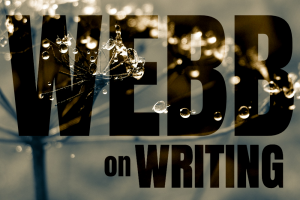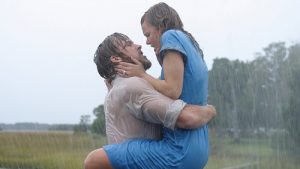Posts by Heather Webb
Being accessible online has become a mainstay for writers today (or author-preneurs, as I like to call us). Sometimes it’s a lot of fun chatting with people, seeing their pictures of their travels or their children, hearing about good news from our colleagues. Getting to know our readers. But it can also be a thorn in the paw and cause some serious issues, like these:
Speaking of anxiety, I have to admit, I’ve been finding myself increasingly anxious after spending time on social media, though in general, I enjoy using it. This anxiety is probably because, oh, a few things in the world are “in flux,” shall we say, like these:
Read MoreAs I sit in the Chicago airport during a layover on my way to the Sundance Film Festival (headed to meet up with our very own Queen of Writer Unboxed, Therese Walsh!), I’m pondering the way my writing routine has changed. If you’d asked me a few years ago if I could write at a stand-up counter in the airport with hoards of people streaming on either side of me, I would have laughed. If you had asked me where and how my most important writing takes place, I would have said quietly, at my desk, or on occasion, in a dark corner at my local Starbucks. But as I munch on Garrett’s gourmet popcorn (omg, it’s the best here), I’m rather surprised at how I’ve changed.
Read MoreAt the moment, I’m wading through the deep end of revisions. Though revisions can feel drawn out and challenging, this is my favorite part of the writing process. I’ve been poring over my agent’s notes, and as I do, a series of little light bulbs have been clicking on, one by one. Suddenly I find myself viewing my manuscript in a completely different light. The story has two alternating points of view, telling different “sides” to the story, that eventually merge together, and it all takes place in gritty, turn-of-the century New York City. The problem is, Character A is very solid and her motivations are clear, her stakes high, and her resolution satisfying. Character B needs work—she’s naïve and just too good. Good enough to be annoying. No one likes a Pollyanna and so I’ve ruminated on how to shape Character B while still preserving her personality. It’s taken me quite some time to brainstorm and to try a few different ideas, and I wasn’t sure why that was, but I’ve finally struck upon something.
The real problem is that I’ve been holding back. Afraid to make Character B a difficult character to like, afraid the reader would reject her because of her flaws. In my head, I’ve been constraining myself with historical character tropes as well as not going deep enough. That’s not the kind of writer I am, or want to be. Flaws, after all, are what make characters interesting and also human. When a character either battles or overcomes their flaws, it lends the resolution weight as well, giving the story a much more satisfying end. So why then, had I been afraid?
Writing without Restraint
For one thing, this novel is a risky venture. I’ve—once again—tried on an atypical time period in a setting with purely fictional characters. In other words, the book may not sell. (Historical novels have a set of rules and I’m bending a couple of them here.) I’ve been down this road a couple of times before, and it’s not an easy one. But that’s just it. There isn’t a single thing that’s easy about writing or selling books, and holding myself back by being too afraid to step out, or by considering the commercial aspect alone, will not create a great book. I suppose I’m writing about this today because I didn’t expect this—I didn’t expect that after seven novels I might fall into the trap of making choices about characters to target the marketplace. Of being afraid to shake things up. Needless to say, I’m grateful, as always, for my critique partners and my agent and their wisdom. Now I know I have to bust out of this place of restraint and fear, but how do I do it?
I sat myself down to answer and think about these things:
Read Morehttps://www.udemy.com/course/get-writing-keep-writing/
It’s fall! You know what that means–it’s submission season. My inbox has flooded with client requests to help shape their queries and synopses. I’ve been seeing many queries, in particular, with similar mistakes or less-than-optimal structuring so I thought I’d share my laundry list of what makes a query juicy, what to avoid, and a few other points to making your query a slam-dunk success.
WHAT’S IN A QUERY?
If your book is:
Read More
ew.com
Romance novels get a bad rap, and yet, at the very core of human existence is the need to be loved, to belong, and to find a mate. What is it about romance that makes some sneer? Even Nicholas Sparks has said he doesn’t write romance, he writes love stories, or so I’ve heard. We can sneer all we like, but romance or romantic stories have an enormous readership and are often some of the most poignant books on the market.
Personally, I find romances (especially twisty, angsty ones) to be some of the most satisfying novels. What could be more important, life-changing, and devastating than finding love (or losing it), and how that love shapes a person’s view of the world? In particular, I tend towards romances set in the past. (Big shock, I know, since I’m a historical fiction author.) I’ve been reading historical romance since I was eleven years old, in fact, and though the scope of the books I read has changed dramatically, I find it as fulfilling as ever. I’ve even ventured into this category in my own writing. When done well–researched and romantically authentic–history and romance are a winning combo. Admittedly, what I write is considered to be far more historical than romance, or more book club fiction than genre fiction (Honestly, I hate those divisions. Good fiction is good fiction, regardless of labels, tropes, and expectations), but my defense of a damn good love story stands.
Let’s look at some tips to make sure the romantic element of your novel is on the right track. First of all:
Decide the Heat Factor up Front: The heat factor will determine both where you will pitch your novel in terms of publishers, as well as who your readers will be. Do you want your novel to be on the spectrum of less-is-more unrequited love, or ratchet it up a notch to heavy petting? Perhaps you want your characters to become romantically entangled and to go the Full Monty. This isn’t so much about what you are comfortable writing (we all need to step outside our comfort zone at times!), but it’s about what rings true for your characters, for the era, for the social class and circumstances they live in, and most importantly, it’s about your goals. For example, look at the range of these examples: Outlander by Diana Gabaldon, The Light We Lost by Jill Santopolo, Letters From Skye by Jessica Brockmole, Possession by A.S. Byatt, and The Notebook by Nicholas Sparks. These stories range widely in heat, tone, detailing, era and sub-category. Their audiences may not crossover much at all, but at some point, the authors decided how much “on stage” heat they wanted to weave into the narrative.
Keep in mind that what is left unsaid, or what hasn’t happened yet in the ‘hot scenes’, can be far more powerful than a detailed description of every caress, every thought, every moment of breathlessness. It can not only be more powerful to omit, but it can also create much more tension. A good love story is always about the tension you create between your protagonists. The tit-for-tat. The […]
Read Morehttps://bit.ly/2LBLUFi
Book tours are a sort of mythical, magical unicorn for most of us. Perhaps that’s because we all have this vision of paid hotels and airfare and hordes of readers flocking to the bookstores in any city we travel to, wearing tee shirts with our names on them. We all see ourselves as Neil Gaiman or Ann Patchett or Elizabeth Gilbert, being greeted by the mass with glee. Our perception is a funny thing. I read an interview once with John Grisham where he talked about traveling to a Barnes & Noble in a mall in a town across the country. He sat a table stacked high with his books and a pile of sharpies. Staff stood by to assist him should he need to beat off the crowds. But only one woman came, the entire span of his signing—and only because the store clerk sent her to Grisham’s table. She’d never heard of the guy.
Oh, the humiliation.
I’ve done a few book tours and sadly, this scenario isn’t unfamiliar. Ask any author. We all have a treasure trove of embarrassing stories like this one. In fact, currently this is a publishers’ favorite line: tours don’t sell books. So why do authors some continue to go on tour? We’ve all seen the photos and the memes.
Are they worth it? It depends on who you ask.
Read Moretribality.com
I’ve just returned from the Historical Novel Society conference, a place where nerds unite! And I am one. A big giant nerd. I get to hang out with people who know minutiae about which poisons were used in Renaissance Italy to off the powerful, or info about the first steam-powered car. An don’t even get me started on ancient burial rites.
My writing partner, Hazel Gaynor, flew over from Dublin and we laughed enough to make our sides hurt, plotted our next book, and double-fisted pints of coffee and glasses of wine. (Jet lag is confusing.) I joined my fellow authors of the French Revolution collaboration (we’re calling ourselves the Scarlet Sisters) in a champagne toast to celebrate our book out this fall. It was wonderful catching up with so many friends, listening to panels about heroines of WWII, how to write dual timelines, crafting sword-fighting scenes, and discussing the way movements from the parallel and intersect with those of today. I had a blast participating on a panel discussing how to write the historical female during the #Metoo movement, the topics I consider off-limits, and what it’s like to survive backlash when a controversial subject arises in our manuscripts. And of course, I couldn’t be happier than to meet eager readers at the reader’s festival and book signing. The very thing for which every writer yearns.
I headed home, exhausted and happy with many books in tow. I was home only twenty-four hours before packing up the car and heading south for family vacation at the lake and a little R&R. As I ruminated on the events of the last few days, I blasted the soundtrack of Hamilton, the musical. The lyrics have become very familiar to me and my daughter, and we sang along, but I couldn’t help but be struck by one line in particular that day, especially fresh from the conference. The character of Aaron Burr sings:
Read Morewired.com
Mindspace. You won’t find this term in Merriam-Webster, but I’m willing to bet most writers know what I’m talking about. The mind is a place where electricity ignites and runs over brain cells creating memory, thoughts, emotions. A mind is its own entity, but when you add “space” to the term, it creates a whole new dimension. Space equals capacity, area, breadth, but it also means BREATHING ROOM. What term could be more perfect for a creative–for a writer–than mindspace? I suppose what I’m trying to hit upon is how much we need both—inspiration, focus, electricity AND plenty of breathing room. Nurturing it, channeling it, protecting it. Yet many of us aren’t very good at protecting our creative mindspace.
In the last year, I’ve found myself going from one task to another, one story to another, without stopping to take time to refill the well. It’s especially difficult as I write to deadline, sprinkled in with my kids’ spring sports schedules (say that five times fast), which also happens to be the same time I’m gearing up the promotion machine for a book summer launch. ALL GOOD THINGS and yet. I’ve struggled to see clearly, to connect to my characters, to pour myself into my manuscript. I feel untethered from my story, when all I want to do is plug in and do a deep dive. I’m feeling the urge to protect the creative pathways in my brain that enable me to write something meaningful. Though I keep trying, I’m failing a lot right now. But sometimes I succeed and manage a blissful streak of pure creative impulse, lots of breathing room, and time to delve deeply.
BUT HOW DOES ONE CREATE and PRESERVE and PROTECT THOSE PURE CREATIVE MOMENTS?
I’m working on a formula for success and it’s starting to look a little like these tips below:
Write First: Write first thing in the morning before a.) you’ve consumed information that may affect your mood and send you spiraling into the abyss of how f*cked up the world is, b.) looked at your never-ending list of “to-dos” and inbox and had a panic attack, or c.) felt the urge to schedule something else during the sacred writing time, including lunches, meetings, appointments, phone calls, or even the all-important cleaning the keyboards in the house with Q-tips. Not everyone is a morning person, and I get that, but it’s never EASY to get up early, but the world is quiet in the early morning hours and you, therefore, can be quiet—quietly immersed in your story—too.
Routines: Change your routine. Sometimes the same ol’ same ol’ doesn’t work anymore. Buck the system! Burn it down! Turn it inside out and see what happens. I’m absolutely NOT an evening writer, but sometimes, I find it helps me get out of a weird slump because I’ve already accomplished everything I needed to for the day and in that evening space, I can be calmer, quieter, more focused. It doesn’t work as a rule for me, but it can have the same sort of effect the early morning writing does. The world is quiet.
Setting Boundaries: Set time limits to media consumption—all kinds of media. When I mute my notifications for a few […]
Read Morehttps://wallpapercave.com/dark-sea-wallpaper
A friend of mine recently asked me why I write. She found she couldn’t answer the question herself, not anymore. She’d lost the love, and she was hoping something I’d say, as well as the other writers around her, would trigger an awakening in her. She wanted to find her path back to the career about which she had once been so passionate. I think we all go through this at one time or other, when life at home becomes difficult, or when everything in your writing career goes wrong. The rejections become unbearable, you lose an agent, your editor leaves and you’re left orphaned. Your sales aren’t what you hoped and there’s question as to whether or not your next book will be picked up at all. Then there’s the dreaded: “Sorry, you’ll have to take a pen name because Jane Doe is dead.”
I’ve recently suffered a painful rejection from someone I didn’t expect. A reminder that no matter how many books you have in print, no matter where you think you are in your career, your books, your ideas, your style are subjective and you can be rejected as easily as someone who has never sold a book before. I don’t think “established” authors talk about this enough. How often we still suffer various forms of rejection. Each book is like an audition, and your work may or may not be selected for the competitive publishing schedule. (This is why it must be about the writing, but I digress.) In any event, one never really grows accustomed to rejection, not really, and when it happens, I think many of us find ourselves asking the same question:
Read More
It’s been quite awhile since I’ve posted for the King’s Editors, so when I saw this submission, I thought I’d jump in again, give my two cents to show the way an editor thinks. The main character in this selection is a policeman, so I assume this will be a suspense, crime, or thriller piece. That said, given the set up and pace, it reads more like a character story. Sure, there can be some overlap, but generally, it’s obvious what direction we’re headed right off the bat. Let’s take a look at the sample and what I’ve marked, and then discuss what’s working in this piece and what isn’t.
****Sample Starts Here
Mitch Altman navigated the obstacle course that was his living room(1). On his way to the garage, he stepped over the colorful Matchbox cars that were parked and ready to race, zigged to the left so as not to crush a Lego building, and zagged back to avoid Barbie’s Dream House. Once he reached his car successfully, he felt like Clark Kent. It was time for him to change from doting father into police detective. He didn’t take off glasses or don a special suit, but the transformation felt just as dramatic(2).
Ten minutes after he’d been sharing a cup of tea with Lisbeth’s newest doll and trading knock-knock jokes with his son Howie, Mitch parked in his assigned space in the outdoor lot behind the station house. He was now focused and ready for work(3).
Mitch slid out of his car, unfolding his long body until he stood up straight, all six-foot-five-inches of him. He looked like a lit match standing there, tall and skinny with the bright red sun reflecting off his ash-blond hair. The Hheat almost made his knees buckle. Nine o’clock in the morning and already it had to be at least ninety degrees. And as if that wasn’t bad enough, humidity thickened the air.; Mitch struggled to breathe in the damp air gooey sludge(4). He was sweating by the time he reached the front door of the Lyle Police Station, only fifteen steps from his parking spot(5).
Inside, just past the front desk and reception area, there was one large room where the detectives sat when they weren’t out on a call. That bullpen had no windows. One wall sported a few Wanted posters from the FBI and the Connecticut State Police. The other walls were empty, covered only with a faded beige paint that matched the drab linoleum on the floor. The detectives often joked that if they spent too much time in the station, they would confess to crimes themselves. They likened their workspace to a sensory deprivation tank(6).
“Good morning all,” Mitch called out. “Hot enough for you?”
The other detectives looked up and smiled by way of greeting, but lost in thought, their eyes were glazed, and no one answered him.
The room was way too […]
Read MoreI’ve worked like a dog the last two weeks on EPIC copy edits so today, I’m running short on inspired creative thinking and tall on advice. It’s January, after all, and isn’t that when we’d all like a little advice, a little pep in our step to help us take on the new year? I know I do, so here we are with some of the most important things I’ve learned as a published writer (regardless of the publishing path you choose to take). WARNING: some of it isn’t pretty.
Professional Behavior is Paramount
Though professional behavior should go without saying in your field of work–in this case, publishing–you’d be surprised just how damned infrequent it is. It’s important to remember, people perceive who you are as a person as well as who you are as a writer by your behavior. Like it or not, them’s the breaks. Here are a few tips:
Read More
I begin with a deep bow. A deep bow to you, courageous Nanowrimo-ers, for plowing on—and for using all the words I can’t find. I just can’t seem to muster the strength to write. I can barely focus. My brain is made of eggnog and Figgie pudding, and I think my insides are slowly turning to brown sugar and butter. All I can think about is which fantastic holiday goodie I should bake, which cheesy holiday movie I’m going to watch, and the endless sales that are begging me to buy all the things. I find myself wondering how long I can hide in the bathtub with a book, or how long I can go without laundry (we’re down to the swimsuits and bathrobes now).
In fact, I’ve been staring at this blank page for days, trying to summon the energy to draft a blog post for my beloved Writer Unboxed community. That’s how bad it is. So I figured I should follow the famous advice we’ve all heard a million times and write what I know. Well, here it is.
I know that my holiday list of chores is long but enjoyable. I know that I’ve worked extremely hard and at lightning speed all year on three different projects—and I’m tired. My brain wants to hibernate for awhile. And yet, developmental edits just arrived on my desk for one project, and copy edits for another are coming before Christmas. Then there’s my WIP that is in desperate need of attention. It’s been calling my name, nagging me to come back and bring the love.
But, but…Love Actually is on and also my daughter reallllly needs those llama slippers. (I’d better run and get them before they’re gone, don’t you think? Maybe my son would like the Zelda Switch game. Oh, and my husband definitely needs a new Red Sox hat…)
The fact of the matter is, I have wicked holiday torpor.
The week before Thanksgiving it invaded my body and now, every ounce of will power seems to be seeping away. A conundrum to be sure. So I’ve decided I need an optimistic, positive spin on my holiday sloth, because that’s who I am, and that’s what helps me get back to the page. Eventually. For those who are feeling the same way I am, maybe we can do this together. I’ll give you a little advice and you leave me some in the comments? We have to get back to the page, after all, right?
1. Don’t beat yourself up, unless it’s with candy canes. Because if you’re going to berate yourself, you might as well be minty fresh. Seriously, you may just need a break. Plus, aren’t the holidays supposed to be enjoyed? Do it. Enjoy them. No more fussing and belittling yourself. Unfocused work is like two steps forward and one step back, anyway, so take time off when it’s needed.
2. Work in small bite-sized chunks of chocolate. Don’t fight the chocolate covered cherry urges. Instead, have a couple with a cup of tea and choose a few small tasks that you know you can accomplish that day, and leave it at that. The turtle wins the race, after all.
3. Stand like a Nutcracker solider while writing, instead of sitting. I […]
Read MoreI have a short post to share with you today with a small but rather important point.
We need to take our time while crafting our stories, to say something meaningful, or to craft a story of which we’re proud, whatever that may be.
I’ve just ordered a pain au chocolat and a café crème in this little café in Nice. I know, poor me. I’ve got my journal and my laptop and I’m jotting down thoughts about tangled plot points as they come to me. I’m also spending some time asking my protagonist questions that may be difficult for her to answer. I’ve had this story idea brewing for some time, but it has become wedged in my brain and I’ve had trouble digging it out, coaxing the characters to talk to me. Maybe the four trips I’ve made in the last two months has something to do with it, or losing my beloved mother-in-law this summer and all that has entailed, or it could also be that I’ve been too distracted by another project. Whatever the cause—and it’s likely a little of all of these things—I’ve had trouble diving back in. Fair enough, right?
But the issue is, I’m feeling so much pressure.
It isn’t just that my life is full. That’s always the case and it’s something I’m grateful for. (Frankly, when it’s not, I’m bored.) The pressure is self-imposed, mostly, but it sort of buzzes through the publishing industry as a whole as well. There’s so much pressure to hit that goal, to be the first to write about that particular angle on a subject, and mostly importantly, there’s pressure to get paid.
Read Morewww.skedline.com
This is one of those topics that’s sticky and tricky and I have to admit, I had my qualms about posting it. In the end, it seemed too important a topic NOT to post. Important in today’s climate and mostly, important to those of us who want to be the best fiction writers we can be. (I also thank Therese Walsh, who quietly nudged me to be brave.)
Recently, I worked on three different client manuscripts written by male writers. One of the writers in particular, showed very skillful writing. It was gripping, well-paced, and had interesting metaphors. In fact, I was happily reading along with few comments until about page eight when something happened in the narrative that made me realize—oh, crap, THIS CHARACTER IS A FEMALE. I scratched my head, trying to figure out what was missing. The character was a little rougher around the edges, an anti-princess if you will, which was great. I love a rough-and-tumble female character with a side of badass, so this wasn’t the problem. I started reading from the beginning again, looking for clues. How had I missed this?
And then it hit me, on my second read. This protagonist, in fact, all three protags from the client books I mention above, were missing the same thing. A fundamental piece of being a woman was absent.
The protagonists lacked both body and spatial awareness.
What does that even mean, spatial awareness? Being proud/ashamed of your body and/or your physical skills is certainly a part of spatial awareness, but it extends far beyond this. It’s something that is deeply programmed in our psyches, as women. A message that grows louder as we gain experiences, most of them negative, but some good, too.
And then there’s our relationship to men, and how it relates to this awareness.
It doesn’t matter the male’s size, shape, or ethnicity, his clothing or social status. A male’s age might matter some, but that’s about it. When confronted with men they do not know and in an exposed situation, most, if not all, women feel like a rabbit hopping through a field littered with foxes and coyotes and hawks and eagles. The predators may look different, but they ALL want to chase that rabbit. Rabbits are food for many species after all. Some rabbits are wily and escape, some are just plain fast and get away, and some have strong hind legs and kick the crap out of the predator to fend them off. None of these things change the simple fact that women are still rabbits. They are the prey.
Maybe this is a silly analogy. Certainly, there are wonderful people and horrible people out there, weak and strong, regardless of their sexual orientation, and great and weak writers regardless of their gender. There are also many wonderful men. This is not a male-bashing post, not at all. That’s not my point. Neither is my point that it’s always the men whose female characters lack this body and spatial awareness in their stories—though it’s much more common, and I’ve got a stack of edited manuscripts to prove it.
My point is about craft.
Do your characters reflect this body and spatial awareness? We writers need to take note […]
Read More
















